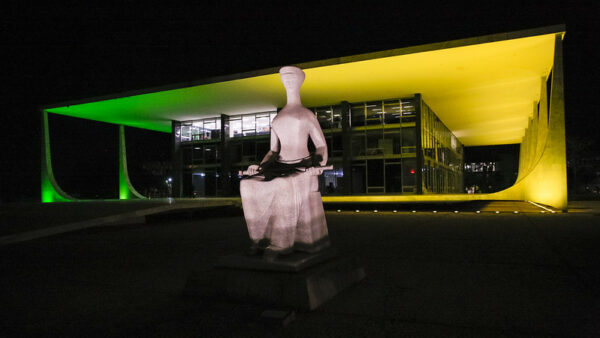A working group created by Brazil’s Superior Electoral Court to prevent political violence during this year’s elections has vanished without a trace.
As The Brazilian Report previously reported, the task force was announced in July and was to present a report within 45 days — that is, early in September. The report was to include suggestions for “additional guidelines” for electoral courts to “fight political violence in the 2022 elections.”
The court’s press office has failed to reply to repeated requests for information by The Brazilian Report over the last two weeks on why the group has not yet publicly presented a report.
The working group held its first meeting in August, on the topic of political violence against women. Electoral authorities have not published records of any other meeting on its website.
On August 16, Justice Alexandre de Moraes took over from Edson Fachin as head of the Superior Electoral Court. In a similar but separate initiative, Justice Moraes created an “Intelligence Center” to combat electoral violence.
There are two main differences between the “Intelligence Center” and the working group.
The first one is their makeup. The working group is composed entirely of employees of the Judicial branch, whereas the Intelligence Center includes high-ranking police officers from three Brazilian states. Justice Moraes is himself a member of the Center, while Mr. Fachin did not include himself as a member of the working group.
The second difference concerns their mission. While the working group was created to issue “guidelines,” the Intelligence Center’s objective is “to collect data and process information of interest to public security during the 2022 election period.”
As Supreme Court Justice, Mr. Moraes recently greenlit search and seizure operations at addresses linked to eight businessmen who support President Jair Bolsonaro. He also presides over a controversial inquiry that has been used for several different purposes, purportedly to defend the Court and democracy itself.
Episodes of political violence keep happening
Local newspaper O Povo reports that a man on Saturday stabbed and killed a bar patron in the city of Cascavel, in the northeastern state of Ceará, after the victim expressed support for former President Luiz Inácio Lula da Silva. The crime is under investigation. If the circumstances are confirmed, this will be another addition to an already long list of episodes of political violence this year in Brazil.
In August, the House Human Rights Committee held a public hearing on the security of the 2022 election. Edson Borowski, a coordinator at justice system workers union Fenajufe, sees “extreme political violence” as likely to happen.


 Search
Search










































